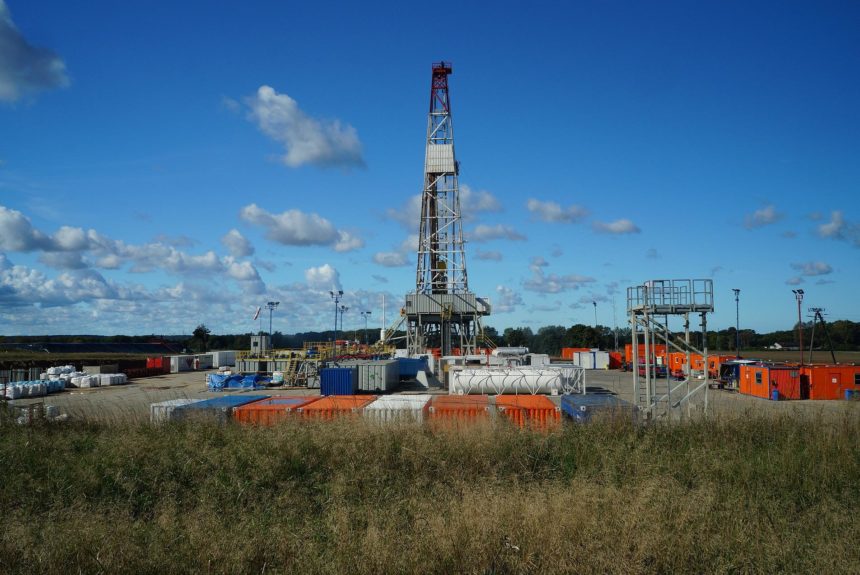Since his first day in office, President Joe Biden has been at odds with America’s fossil fuel energy supply. He halted the Keystone XL Pipeline and placed a moratorium on oil and gas leasing on federal lands. The administration says these actions were taken in an attempt to reach aggressive climate and environmental targets.
>>>READ: American Fossil Fuels Have Key Role in Global Energy Mix
While addressing climate change is indeed a noble and necessary objective, the White House’s attack on traditional American energy production has had unintended environmental consequences. Nick Loris testified before the House Natural Resources Committee to discuss the role that federal oil and gas leasing plays in accelerating conservation efforts across the country and reforms that would boost domestic energy security.
American energy production is conducted on federal, state, and private lands. To drill at the federal level, oil and gas companies must first go through a bidding process to obtain a lease, which usually lasts 10 years. Once a lease is acquired, the organization taking the lease is required to pay rent on the land or royalties on the sales of the energy that is produced.
As Loris pointed out, these revenues play an essential role in funding federal and local conservation programs, including the Historic Preservation Fund and the Land and Water Conservation Fund.
“Importantly, the government revenues collected from federal energy production are a significant contributor to conservation efforts. Offshore energy revenues fund the Historic Preservation Fund. The bonus bids, royalties and rents also fund state conservation programs, including coastal restoration, recreation through the Land and Water Conservation Fund, and the deferred maintenance backlog at America’s national parks. In addition to revenue, the Rigs-to-Reef program, permitted by the National Fishing Enhancement Act, has turned 558 Outer Continental Shelf rig platforms into artificial reefs in the Gulf of Mexico. According to the Coastal Marine Institute, each artificial platform reef provides a home to 12,000 to 14,000 fish.”
Increasing the barriers to entry for domestic fuel production has negative environmental impacts beyond reduced funding for conservation programs.
“[M]oratoriums and restrictions may have the unintended environmental consequence of increasing global greenhouse gas emissions and criterion pollutants that adversely affect public health and the environment,” said Loris. “[R]estrictions and bans on domestic extraction would likely provide opportunities for increased supply from OPEC+ and other countries where the environmental standards are less rigorous.”
Indeed U.S. fossil fuels can play a significant role in reducing emissions worldwide. A recent report from the Citizens for Responsible Energy Solutions (CRES) found that if the ”European Union (EU) replaced its Russian natural gas for electricity production with U.S. natural gas, the associated global emissions would fall approximately 72 million metric tonnes annually. For comparison, the EU estimates that it needs to reduce its emissions by 78 million metric tonnes each year to reach its 2030 targets.”
Loris offered the Committee six policies to boost American energy security and allow the administration to reach climate and environmental objectives. Among the policies, Loris emphasized reforming the National Environmental Policy Act (NEPA). Instead, just last week the Biden administration announced roll-backs to Trump-era reforms of NEPA. The repealed reforms had temporarily implemented a more efficient environmental review process and lessened the judicial hurdles that have historically been used to slow down project completion times.
On NEPA, Loris said, “The primary tool to block projects at the federal level is the National Environmental Policy Act (NEPA), before adding, “NEPA modernization is not a silver bullet but will dramatically help mitigation, adaptation, and natural climate solutions occur more expediently and efficiently.”
Loris concluded his testimony by stating that: “the link between energy production on federal lands and conservation funding is one that can advance America’s economic, energy security, and environmental objectives. Policy reforms that open access to natural resource development, modernize permitting and encourage innovation will deliver more affordable energy to American families, more energy choice to our European allies, and more revenues for critical preservation projects.”
Watch the full hearing here.
The views and opinions expressed are those of the author’s and do not necessarily reflect the official policy or position of C3.
